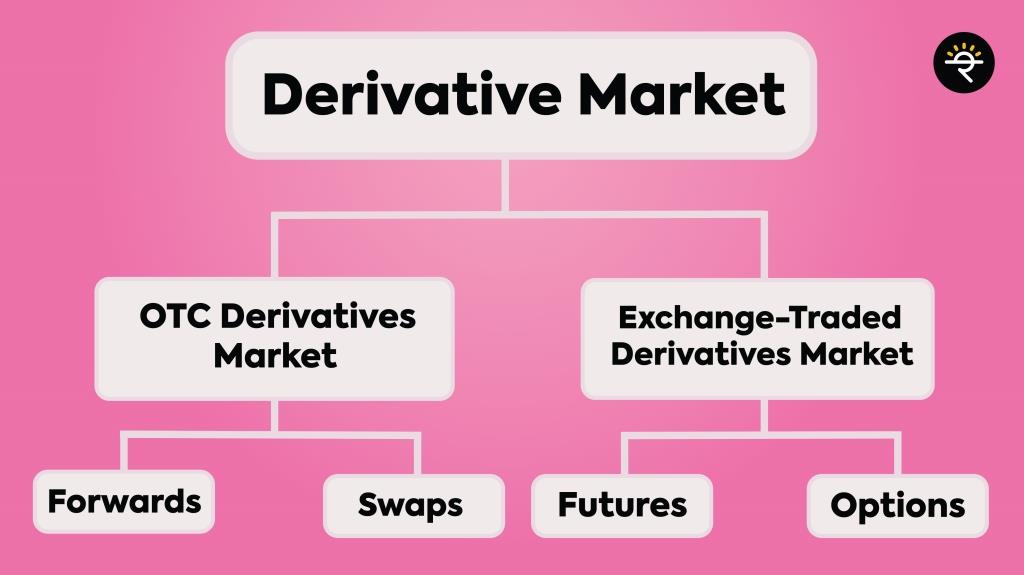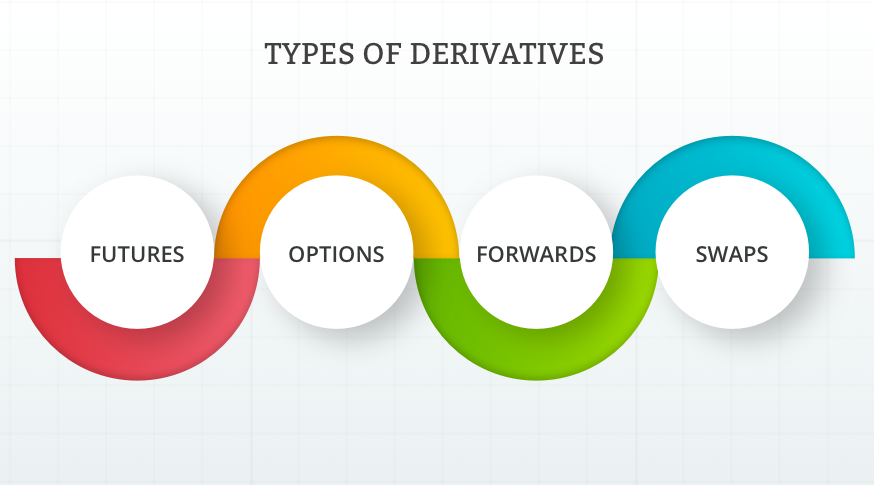Economy
FMDQ to Begin Exchange-Traded Derivatives Market July 12

By Adedapo Adesanya
The MDQ Securities Exchange Limited has announced plans to introduce its dynamic Exchange-Traded Derivatives market on July 12, 2023.
The new market will offer three products – the Federal Government of Nigeria Bond Futures, Treasury Bills Futures, and Open Market Operation Bills Futures, at the commencement of its operations.
The exchange, in a statement, said these products would deliver the dividends of the derivatives market by serving as useful risk management tools, supporting price discovery, competitiveness, and market efficiency, which in turn will help attract capital flows, reduce the cost of capital, promote secondary market liquidity, and ultimately deepen the Nigerian financial markets.
It noted that financial markets are plagued with heightened price volatility, fluctuating market prices/rates, and the constant uncertainty of macroeconomic indicators, with the Nigerian financial markets not faring any better.
Hence, the new ETD market is its response to the counter and assuage these adverse effects; robust and efficient risk management tools, such as derivatives, are typically employed.
“Whilst model markets have been able to harness the potential of the derivatives markets to mitigate risk efficiently, diversify investment portfolios, and allow businesses to pursue expansion with a higher risk in a safe manner, the reverse is the case in emerging and frontier markets, such as Nigeria, as derivatives markets are non-existent or small – with a dearth of derivatives products – at best, and hedging costs are high, making it uninteresting for market participants,” it said.
FMDQ noted that it conducted a feasibility study in 2015 to launch Nigeria’s most dynamic ETD market in collaboration with market stakeholders, thereby introducing exchange-traded risk hedging products to the Nigerian financial markets as is obtainable in other developing and developed financial markets globally.
The project, according to the firm, has recorded many milestones and implemented several initiatives including, but not limited to, the development of the FMDQ ETD Market Framework, SEC-approved Rules, and membership requirements; deployment of fit-for-purpose and optimised ETD trading and clearing modules on the FMDQ Q-ex System; development of Risk Management and Operational Framework across the financial market infrastructure (FMI) value chain; development of SEC-registered derivatives products; and execution of various stakeholder engagements and training sessions.
It was disclosed that it has impacted over 2,600 market stakeholders across the financial markets value chain, ranging from regulators, financial and non-bank financial institutions, corporate treasurers, accountants, legal practitioners, journalists and individuals, to sensitise and promote readiness for the imminent launch of the FMDQ ETD market.
As market participants position themselves to take advantage of the emerging novel segment of the financial markets, FMDQ Exchange is working with its 21 dealing members (DMs), three DMs with full licences and 18 DMs with Approval-in-Principle – to participate in the FMDQ ETD market as its pioneer Derivatives Trading Members (DTMs).
The DTMs will receive support from FMDQ Clear through six (6) Deposit Money Banks (DMBs) who will share mutualised responsibility, as Members of the CCP, in its mandate of ‘de-risking’ the Nigerian financial markets either as General Clearing Members (GCMs) – capable of clearing transactions for their proprietary positions and those of other DTMs and clients; or as Direct Clearing Members (DCMs) – capable of clearing their proprietary positions and those of their clients only.
It said of the six DMBs, there are five GCMs, three of which have full licences (Access Bank Plc, Stanbic IBTC Bank Plc, and Zenith Bank Plc), whilst the other two have Approval-in-Principle, pending the completion of their SEC registration (First City Monument Bank Limited and United Bank for Africa PLC). The sixth DMB (Fidelity Bank PLC) is a DCM with an Approval-in-Principle, also pending the completion of its SEC registration.
In support of the launch of an active and thriving ETD market, FMDQ Exchange introduced the first of its kind Derivates-focused Podcast in Nigeria, Q-Dialogue, an FMDQ-framed colloquy, which is aimed at providing valuable, accurate, and objective information and insight on the FMDQ ETD market.
To further its business development mandate to implement initiatives that promote awareness and drive participation in the FMDQ derivatives market, FMDQ Exchange developed the Q-Estimator, an automated calculator that avails market participants the opportunity to estimate the cost of hedges and potential profit/loss in derivatives transactions or positions in the Nigerian financial markets, thereby equipping market participants to make strategic and informed investment decision-making in the FMDQ derivatives market.
Economy
UK Backs Nigeria With Two Flagship Economic Reform Programmes

By Adedapo Adesanya
The United Kingdom via the British High Commission in Abuja has launched two flagship economic reform programmes – the Nigeria Economic Stability & Transformation (NEST) programme and the Nigeria Public Finance Facility (NPFF) -as part of efforts to support Nigeria’s economic reform and growth agenda.
Backed by a £12.4 million UK investment, NEST and NPFF sit at the centre of the UK-Nigeria mutual growth partnership and support Nigeria’s efforts to strengthen macroeconomic stability, improve fiscal resilience, and create a more competitive environment for investment and private-sector growth.
Speaking at the launch, Cynthia Rowe, Head of Development Cooperation at the British High Commission in Abuja, said, “These two programmes sit at the heart of our economic development cooperation with Nigeria. They reflect a shared commitment to strengthening the fundamentals that matter most for our stability, confidence, and long-term growth.”
The launch followed the inaugural meeting of the Joint UK-Nigeria Steering Committee, which endorsed the approach of both programmes and confirmed strong alignment between the UK and Nigeria on priority areas for delivery.
Representing the Government of Nigeria, Special Adviser to the President of Nigeria on Finance and the Economy, Mrs Sanyade Okoli, welcomed the collaboration, touting it as crucial to current, critical reforms.
“We welcome the United Kingdom’s support through these new programmes as a strong demonstration of our shared commitment to Nigeria’s economic stability and long-term prosperity. At a time when we are implementing critical reforms to strengthen fiscal resilience, improve macroeconomic stability, and unlock inclusive growth, this partnership will provide valuable technical support. Together, we are laying the foundation for a more resilient economy that delivers sustainable development and improved livelihoods for all Nigerians.”
On his part, Mr Jonny Baxter, British Deputy High Commissioner in Lagos, highlighted the significance of the programmes within the wider UK-Nigeria mutual growth partnership.
“NEST and NPFF are central to our shared approach to strengthening the foundations that underpin long-term economic prosperity. They sit firmly within the UK-Nigeria mutual growth partnership.”
Economy
MTN Nigeria, SMEDAN to Boost SME Digital Growth

By Aduragbemi Omiyale
A strategic partnership aimed at accelerating the growth, digital capacity, and sustainability of Nigeria’s 40 million Micro, Small and Medium Enterprises (MSMEs) has been signed by MTN Nigeria and the Small and Medium Enterprises Development Agency of Nigeria (SMEDAN).
The collaboration will feature joint initiatives focused on digital inclusion, financial access, capacity building, and providing verified information for MSMEs.
With millions of small businesses depending on accurate guidance and easy-to-access support, MTN and SMEDAN say their shared platform will address gaps in communication, misinformation, and access to opportunities.
At the formal signing of the Memorandum of Understanding (MoU) on Thursday, November 27, 2025, in Lagos, the stage was set for the immediate roll-out of tools, content, and resources that will support MSMEs nationwide.
The chief operating officer of MTN Nigeria, Mr Ayham Moussa, reiterated the company’s commitment to supporting Nigeria’s economic development, stating that MSMEs are the lifeline of Nigeria’s economy.
“SMEs are the backbone of the economy and the backbone of employment in Nigeria. We are delighted to power SMEDAN’s platform and provide tools that help MSMEs reach customers, obtain funding, and access wider markets. This collaboration serves both our business and social development objectives,” he stated.
Also, the Chief Enterprise Business Officer of MTN Nigeria, Ms Lynda Saint-Nwafor, described the MoU as a tool to “meet SMEs at the point of their needs,” noting that nano, micro, small, and medium businesses each require different resources to scale.
“Some SMEs need guidance, some need resources; others need opportunities or workforce support. This platform allows them to access whatever they need. We are committed to identifying opportunities across financial inclusion, digital inclusion, and capacity building that help SMEs to scale,” she noted.
Also commenting, the Director General of SMEDAN, Mr Charles Odii, emphasised the significance of the collaboration, noting that the agency cannot meet its mandate without leveraging technology and private-sector expertise.
“We have approximately 40 million MSMEs in Nigeria, and only about 400 SMEDAN staff. We cannot fulfil our mandate without technology, data, and strong partners.
“MTN already has the infrastructure and tools to support MSMEs from payments to identity, hosting, learning, and more. With this partnership, we are confident we can achieve in a short time what would have taken years,” he disclosed.
Mr Odii highlighted that the SMEDAN-MTN collaboration would support businesses across their growth needs, guided by their four-point GROW model – Guidance, Resources, Opportunities, and Workforce Development.
He added that SMEDAN has already created over 100,000 jobs within its two-year administration and expects the partnership to significantly boost job creation, business expansion, and nationwide enterprise modernisation.
Economy
NGX Seeks Suspension of New Capital Gains Tax

By Adedapo Adesanya
The Nigerian Exchange (NGX) Limited is seeking review of the controversial Capital Gains Tax increase, fearing it will chase away foreign investors from the country’s capital market.
Nigeria’s new tax regime, which takes effect from January 1, 2026, represents one of the most significant changes to Nigeria’s tax system in recent years.
Under the new rules, the flat 10 per cent Capital Gains Tax rate has been replaced by progressive income tax rates ranging from zero to 30 per cent, depending on an investor’s overall income or profit level while large corporate investors will see the top rate reduced to 25 per cent as part of a wider corporate tax reform.
The chief executive of NGX, Mr Jude Chiemeka, said in a Bloomberg interview in Kigali, Rwanda that there should be a “removal of the capital gains tax completely, or perhaps deferring it for five years.”
According to him, Nigeria, having a higher Capital Gains Tax, will make investors redirect asset allocation to frontier markets and “countries that have less tax.”
“From a capital flow perspective, we should be concerned because all these international portfolio managers that invest across frontier markets will certainly go to where the cost of investing is not so burdensome,” the CEO said, as per Bloomberg. “That is really the angle one will look at it from.”
Meanwhile, the policy has been defended by the chairman of the Presidential Fiscal Policy and Tax Reforms Committee, Mr Taiwo Oyedele, who noted that the new tax will make investing in the capital market more attractive by reducing risks, promoting fairness, and simplifying compliance.
He noted that the framework allows investors to deduct legitimate costs such as brokerage fees, regulatory charges, realised capital losses, margin interest, and foreign exchange losses directly tied to investments, thereby ensuring that they are not taxed when operating at a loss.
Mr Oyedele also said the reforms introduced a more inclusive approach to taxation by exempting several categories of investors and transactions.
-

 Feature/OPED6 years ago
Feature/OPED6 years agoDavos was Different this year
-
Travel/Tourism9 years ago
Lagos Seals Western Lodge Hotel In Ikorodu
-

 Showbiz3 years ago
Showbiz3 years agoEstranged Lover Releases Videos of Empress Njamah Bathing
-

 Banking7 years ago
Banking7 years agoSort Codes of GTBank Branches in Nigeria
-

 Economy3 years ago
Economy3 years agoSubsidy Removal: CNG at N130 Per Litre Cheaper Than Petrol—IPMAN
-

 Banking3 years ago
Banking3 years agoFirst Bank Announces Planned Downtime
-

 Banking3 years ago
Banking3 years agoSort Codes of UBA Branches in Nigeria
-

 Sports3 years ago
Sports3 years agoHighest Paid Nigerian Footballer – How Much Do Nigerian Footballers Earn











